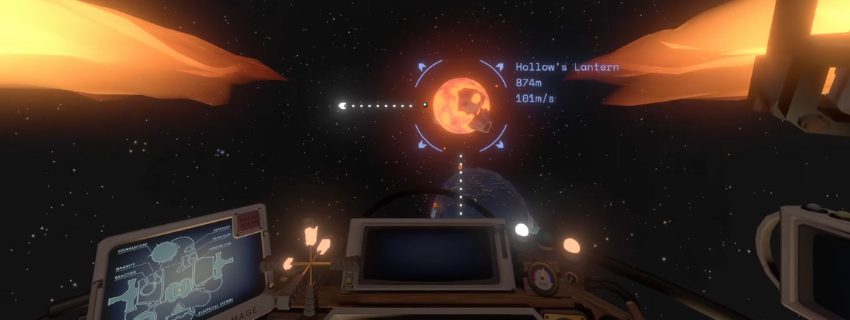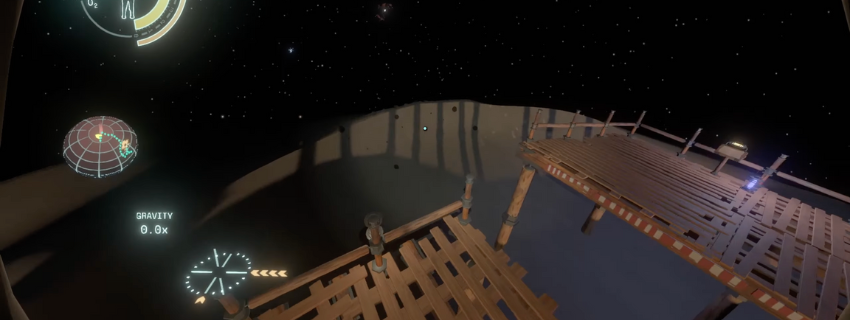The Cosmic Journey in Outer Wilds: A Critical Approach
- 254

In the vast expanse of video game universes, few titles manage to capture the essence of exploration and the inherent curiosity of the human spirit quite like Outer Wilds. Developed by Mobius Digital and first released in 2019, Outer Wilds stands as a testament to innovative game design, combining physics-based exploration with a rich narrative to craft an unforgettable spacefaring journey. This review embarks on a critical approach to dissecting the intrigues of Outer Wilds, focusing on its distinctive gameplay mechanics, storytelling prowess, the enigmatic solar system it presents, the scientific nuances it incorporates, its impact on the player's psyche, and its standing in the video game industry.
1. Gameplay Mechanics: Navigating the Cosmos
The core mechanics of Outer Wilds revolve around exploration in a physics-driven sandbox. Players helm a small spacecraft, traversing a solar system trapped in a 22-minute time loop. This unique setup is not just a narrative device but a gameplay mechanic that affects everything from environmental puzzles to player progression. Dynamic planets with changing environments demand players to adapt quickly, employing their understanding of celestial movements and astrophysics to unravel the mysteries buried in ancient ruins or hidden within shifting sands.
What sets Outer Wilds apart is its non-linear approach to exploration. There are no explicit objectives or waypoints. Instead, players are equipped with tools such as a signal scanner, a probe launcher, and a database that catalogs clues and points of interest, encouraging autonomy in discovery and learning. This hands-off approach fosters an environment of genuine curiosity and experimentation, allowing for varied pacing and multiple layers of engagement.
2. Storytelling: Weaving a Cosmic Tapestry

The narrative architecture of Outer Wilds is both intricate and compelling. At the outset, the game presents itself as a simple exploration title. However, as players delve deeper into the cosmic tapestry, they unravel a rich story interwoven with themes of time, isolation, and the pursuit of knowledge. The storytelling is primarily environmental, with the lore and plot developments pieced together through exploration, observation, and interaction with remnants of past civilizations.
This indirect storytelling approach imbues the game world with a mystique that compels players to seek out its secrets. The narrative crescendos are synchronized with the player's discoveries, forging a poignant connection between the player's quest for understanding and the game's thematic essence. The cyclical nature of the game's timeline ties into the overarching narrative, mirroring the motifs of renewal and the quest for meaning amidst the cosmos.
3. The Solar System: A Microcosm of Mystery
The solar system in Outer Wilds is a marvel of game design, consisting of a handful of planets and celestial bodies, each with its unique biome, physics puzzles, and hidden secrets. The dynamic nature of these environments—such as a planet being devoured by a creeping sandstorm or a moon fracturing under stress—serves not only as a visual spectacle but also as a puzzle in itself.
These celestial bodies are not merely backdrops but characters in their right, with their histories, mysteries, and contributions to the game's lore. The meticulous attention to detail in crafting these worlds pays off in immersing players in a universe that feels alive, ever-changing, and full of wonder.
4. Scientific Nuances: Bridging Fantasy and Reality

Outer Wilds stands out for its commitment to scientific accuracy within the bounds of its fictional universe. The game does an exemplary job of incorporating astrophysical concepts, from gravity to the relativity of time, creating a gameplay experience that is both fantastical and grounded in scientific principles. The realistic simulation of spaceflight and orbital mechanics adds a layer of authenticity and challenge, demanding players to think like astronauts.
The game further enriches its scientific foundation through the exploration of existential questions, such as the nature of consciousness and the possibility of parallel universes. These themes are explored with a thoughtful touch, making Outer Wilds not just a game about space exploration but a contemplative journey through the questions that have puzzled humanity since we first looked up at the stars.
5. Psychological Impact: A Journey Within
Outer Wilds transcends its entertainment value by engaging the player on a deeply psychological level. The game's time loop mechanic, coupled with its emphasis on exploration and discovery, cultivates a unique sense of mindfulness and presence. There is a poignant beauty in the cyclical nature of the game's universe, inviting reflection on themes of impermanence and the beauty of discovery.

Moreover, the game's narrative and environmental storytelling foster a sense of solitude that is both haunting and serene. This solitude, paired with the vastness of the game's universe, prompts introspection and a contemplation of one's place within the cosmos. Outer Wilds offers not only a journey through space but an introspective voyage into the human condition.
6. Reception and Legacy: Redefining Exploration
Since its release, Outer Wilds has garnered critical acclaim and a passionate fanbase, praised for its innovative gameplay, thought-provoking narrative, and the profound sense of wonder it evokes. It has won numerous awards and has been cited as an inspiration by game developers and players alike for its fresh approach to exploration and storytelling.
The game's impact extends beyond its immediate entertainment value, contributing to broader discussions in the gaming community about the potential of video games as a medium for exploration, education, and emotional engagement. Outer Wilds stands as a beacon of creativity and innovation in the industry, challenging conventional game design paradigms and setting a new bar for player freedom and engagement.
In conclusion, Outer Wilds is a masterful blend of exploration, storytelling, and scientific inquiry, offering players not just a game but a journey—a cosmic voyage that challenges, enlightens, and ultimately transforms. It is a rare gem that celebrates the wonders of the universe, inviting players to look beyond the horizon and explore the boundless possibilities that lie within us and the cosmos around us.